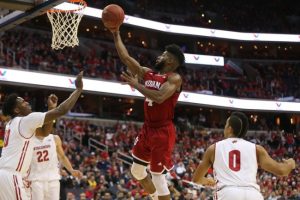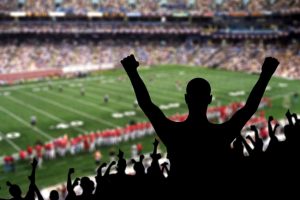 The National Collegiate Athletic Association (NCAA) revealed its intention to study the possible effects of legalized sports betting expansion could affect college athletics and member schools. The Association is remaining firmly opposed to legalized sports betting services, despite the fact that the US Supreme Court has recently ruled in favor of sports betting expansion.
The National Collegiate Athletic Association (NCAA) revealed its intention to study the possible effects of legalized sports betting expansion could affect college athletics and member schools. The Association is remaining firmly opposed to legalized sports betting services, despite the fact that the US Supreme Court has recently ruled in favor of sports betting expansion.
The NCAA, however, is aware of the fact that it would not be able to avoid sports betting legalization, so yesterday, the Association revealed its plans to establish a working group consisting of “subject matter experts” who would be engaged with assessing a number of areas, including state and federal laws, NCAA rules, officiating, as well as the use of integrity services. The leadership of the Association has already called for federal regulation on sports betting services, while its own rules currently prohibit sports betting among athletes and people who work in athletic departments.
A couple of months ago, the US Supreme Court lifted the federal ban on sports betting services, with its ruling providing every state with the chance to make a decision on sports betting expansion on its own. As a result, schools in some US states, including Mississippi and West Virginia, have already started exploring the possibility of collecting so-called integrity fees while waiting for sportsbook operations to be officially given the green light in their states.
Donald Remy, the chief legal officer of NCAA, shared that the Association needs to evolve and expand its long-lasting efforts to protect the competition’s integrity and young professional athletes from possible gambling-related harm.
Schools Want a Chunk from Sports Betting Wagers
 For the time being, the states of Delaware and New Jersey already have sportsbooks which are up and running since the ruling of the US Supreme Court. According to media reports, Mississippi and West Virginia, on the other hand, expect to have sportsbooks running by football season.
For the time being, the states of Delaware and New Jersey already have sportsbooks which are up and running since the ruling of the US Supreme Court. According to media reports, Mississippi and West Virginia, on the other hand, expect to have sportsbooks running by football season.
As mentioned above, some schools have already demonstrated their willingness to receive a percentage of the amount wagered on college sports in their state. Some school officials have even met with the Governor’s office, the state lottery representatives, the American Gaming Association, the National Basketball Association and the Major League Basketball representatives to talk about the possibilities and ask for a 25% fee of the amount wagered on all college sports in West Virginia.
According to media reports, similar meetings have also been held by the Rutgers University, the University of Connecticut and the University of Missouri. According to Mike Hamrick, the Marshall athletic director, the fee would help universities and schools accumulate some additional resources.
Now, NCAA which has already called for federal regulation on sports betting has shared hopes that its group of experts would find more details on the possible negative effects which sports betting could have on communities and young athletes.



















